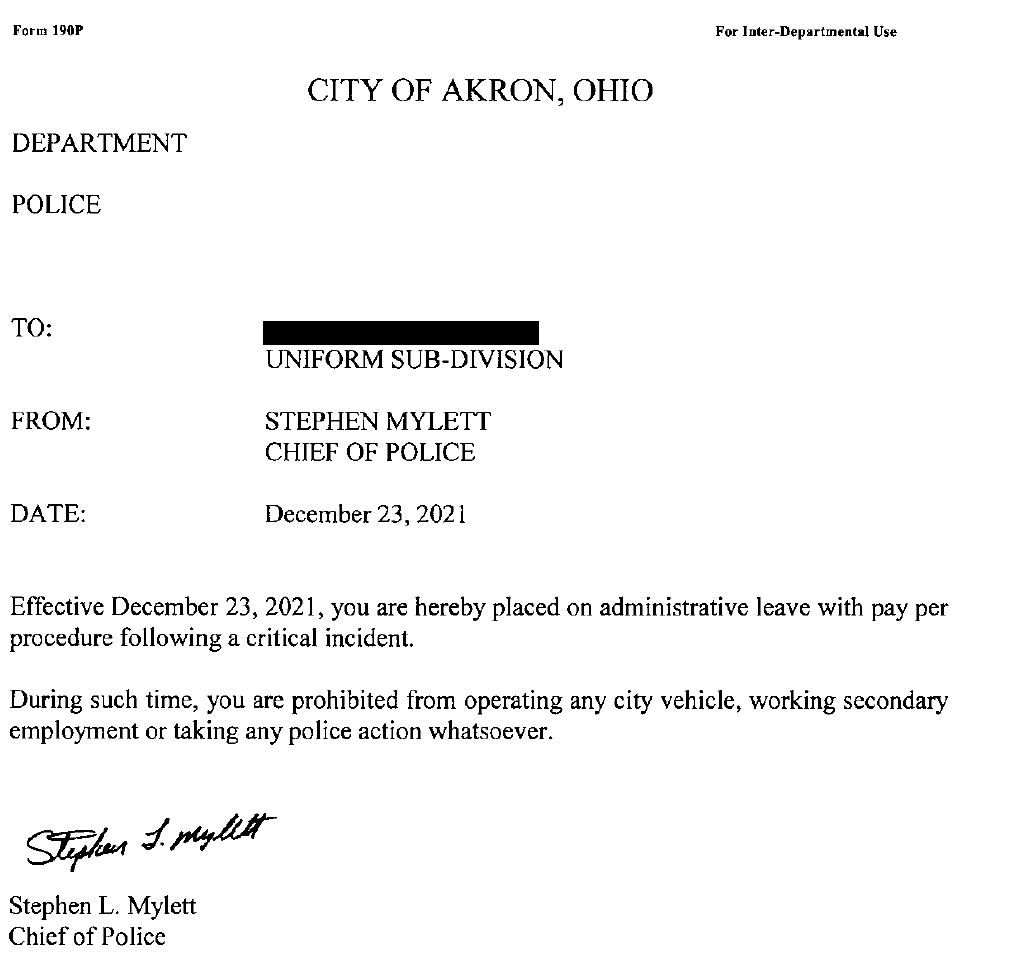Beacon Journal asks Ohio Supreme Court to order release of Akron police records

The Akron Beacon Journal asked the Ohio Supreme Court Monday to force the city of Akron and its police department to release complete personnel records for officers involved in three police shootings.
The newspaper filed a mandamus action asking the state's high court to intervene in a months-long dispute over whether Akron can redact officer names from personnel files, which are public records under Ohio law.
Issue 10: Issue 10 victory puts Akron on national stage for police reforms, Roundtable speaker says
The case focuses on three fatal shootings by officers in December, February and June, the latter being the death of Jayland Walker who was shot 46 times by eight officers.
"Despite repeated requests and contrary to Ohio’s Public Records Act, respondents have refused to provide public records disclosing the identities of police officers involved in these lethal-force incidents and have, instead, improperly redacted such identifying information from the routine employment records that were provided," the lawsuit claims.
Police Chief Steve Mylett has repeatedly declined to identify any of the involved officers citing safety concerns even before Walker's death sparked weeks of protests. Anonymous activists recently released a list of eight names they claim are the officers who shot Walker, but police have refused to confirm or deny the list.
In an unrelated but similar case, Akron has released unredacted personnel records for an officer who wounded a teen with a gun Sept. 3.
The Beacon Journal's lawsuit asserts that Akron officials are wrongly treating the personnel records as protected confidential law enforcement records, which can be withheld for pending cases, and notes Mylett is now allowing officers to wear identification numbers rather than name badges.
"In short, in both its handling of public records requests and its recent protocol changes, Akron has taken the position that its uniformed civilian police officers can act with anonymity and in secret, even when using lethal force," the lawsuit said. "Purporting to operate such a police force with a culture of secrecy surrounding police officers’ use of lethal force is anathema to a democratic society and contrary to near-universal standards of policing in this country."
Policing in Akron: Discussion between community and Akron police unveils suspicions, but seen as first step
Beacon Journal Editor Michael Shearer said the newspaper does not currently plan to publish the names of the officers in these cases.
"Our main focus is on ensuring the city of Akron follows state law regarding public records in these and any future cases where we seek personnel records," he said.
The city declined to comment on the lawsuit Tuesday afternoon.
The officer involved in the December shooting of James Gross has been cleared by a Summit County grand jury, while the investigation of the February death of Lawrence LeJames Rodgers, who shot and killed another man, is pending.
The Ohio Bureau of Criminal Investigation is reviewing the officers' actions in the Walker case. Mylett recently reinstated the eight officers to desk duty.
Opinion: Why we're challenging Akron's increasingly secretive police department
This article originally appeared on Akron Beacon Journal: Akron Beacon Journal sues Akron for release of police records

